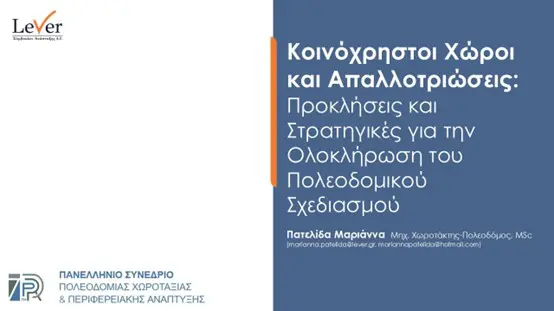Benefits and Risks of Artificial Intelligence: What to Expect in Work, the Arts and Health in the Coming Years
The impact of Artificial Intelligence (AI) on important areas of social and economic life was the focus of a special discussion at Olympia Forum VI. The discussion was attended by distinguished professionals from various fields, including:
Vasilios Blessios, Chief Marketing Officer, Samaras and Partners Group of Companies
Nikos Kogioumtsis, Vice President of the Athens Chamber of Commerce, Vice President of the Athens Chamber of Commerce
Loukia Papa, Lawyer and Quantum Leadership Consultant
Georges Voukanos, Music Composer
Effie Panagopoulou, Author, Creator of Books & Plays
Vasilis Balanis, CEO, GPA Investment Group
The speakers analyzed the role of A.T. in their field, discussing the possibilities it offers, but also the risks it entails. The discussion was moderated by Patris newspaper journalist Giuli Iliopoulou.
Vasilios Blesios, Chief Marketing Officer, Samaras and Partners Group of Companies
“The impact of Artificial Intelligence on businesses has already begun to be felt in the last 2-3 years. By 2030, it is predicted that A.I. will contribute to an increase in Global GDP by 7-14%, the European economy by 6-8% and Greece’s GDP by 5%. As in any revolution, there are positives and negatives. The positives include increased productivity, reduced production costs, increased free time and the creation of new markets and jobs. On the other hand, automation will lead to job losses, while ethical issues will arise and people’s creativity may be limited due to free time. It is necessary to retrain the workforce to develop the skills required for the new challenges. It depends on how people will use A.I., on how they will protect themselves values and labor relations and the role that governments will play with control institutions.”
Nikos Kogioumtsis, Vice President of the Athens Chamber of Commerce, Vice President of the Athens Chamber of Commerce
“Greek businesses face significant challenges due to low wages and lack of financing, which makes them vulnerable. In the field of A.T., the advantage is held by large businesses, which receive financing, resulting in a widening gap between large and small businesses. To reduce this gap, small businesses must invest in technology, e-commerce and digital services in the next five years. At the same time, support is required from the state, which must invest in A.T. and in employee training. If modern entrepreneurship is linked to Tourism and the Primary sector, the results will be spectacular.”
Lucia Papa, Lawyer and Quantum Leadership Consultant
“I believe in the wisdom of cosmic intelligence and I believe that A.I. is not a threat, but a powerful tool that can act as a catalyst for human evolution. It can act as a mirror of our collective intelligence, helping us to see more clearly who we are, what we create and how we envision our future. A.I. is not just a technical development, but a new form of coexistence between human creativity and technological precision. Used with values, A.I. can enhance our ability to make decisions that serve the common good, but the future of leadership will not be defined by the power of algorithms, but by the depth of human presence.”
George Voukanus, Music Composer
“The market for A.I. in the arts is estimated at $3.2 billion in 2024 and is expected to reach $40.4 billion by 2033, with high growth rates. At the same time, sales of A.I. works are increasing, with prices reaching six-figure prices. However, creators such as translators and illustrators are already seeing a decrease in income of up to 24%. The balance between opportunity and decline is an urgent need. In my attempt to approach the topic, I asked A.I. to imagine its collaboration with human artists. Its answer was revealing and I will share it at the end of the discussion.”
Effie Panagopoulou, Author, Book & Playwright
“Artificial Intelligence is not the future; it is the present. As a writer, I see AI as the most exciting assistant and not a replacement. It supports me in the monotonous work, giving me summaries, spell checking and more, buying time for the creation of characters and the essence. However, AI does not feel and does not write with experiences. Literature needs the human heart and identification. That is why, no matter how perfect the AI text is, it lacks charm. In my new work “Ask the Question Mark”, with






